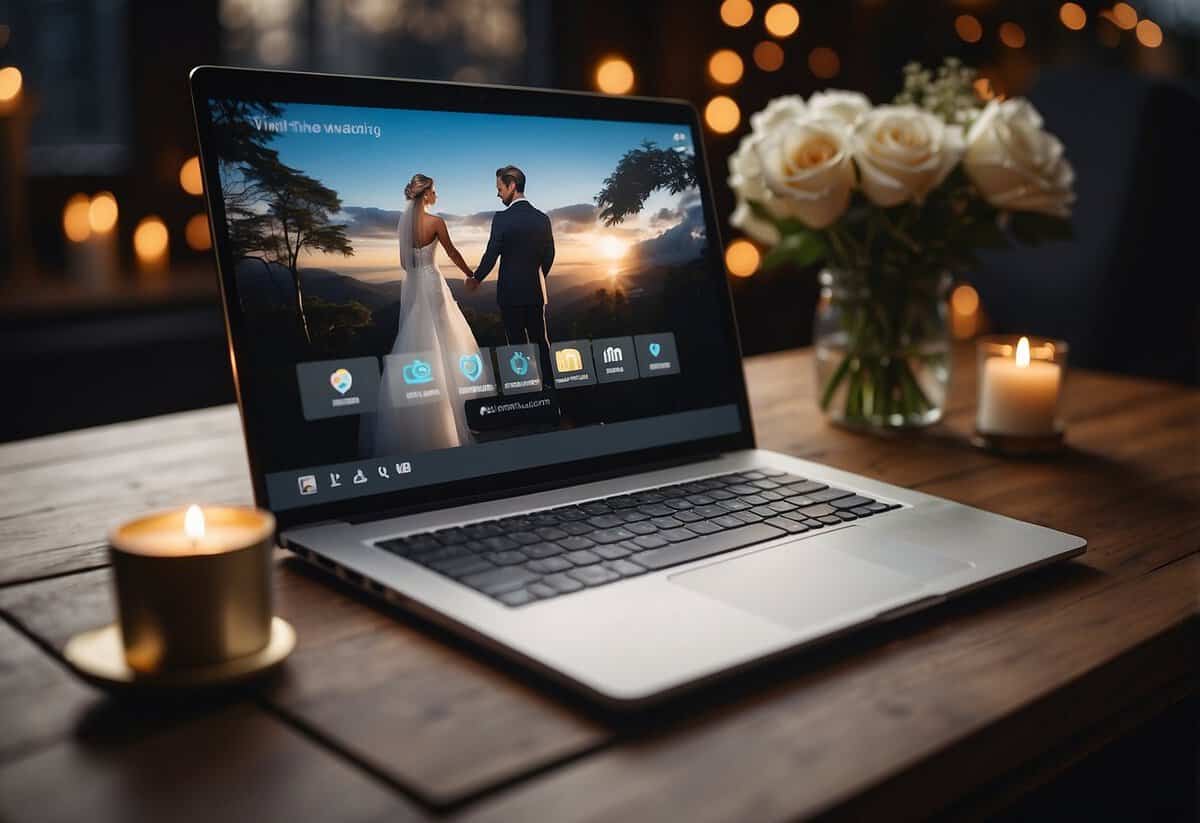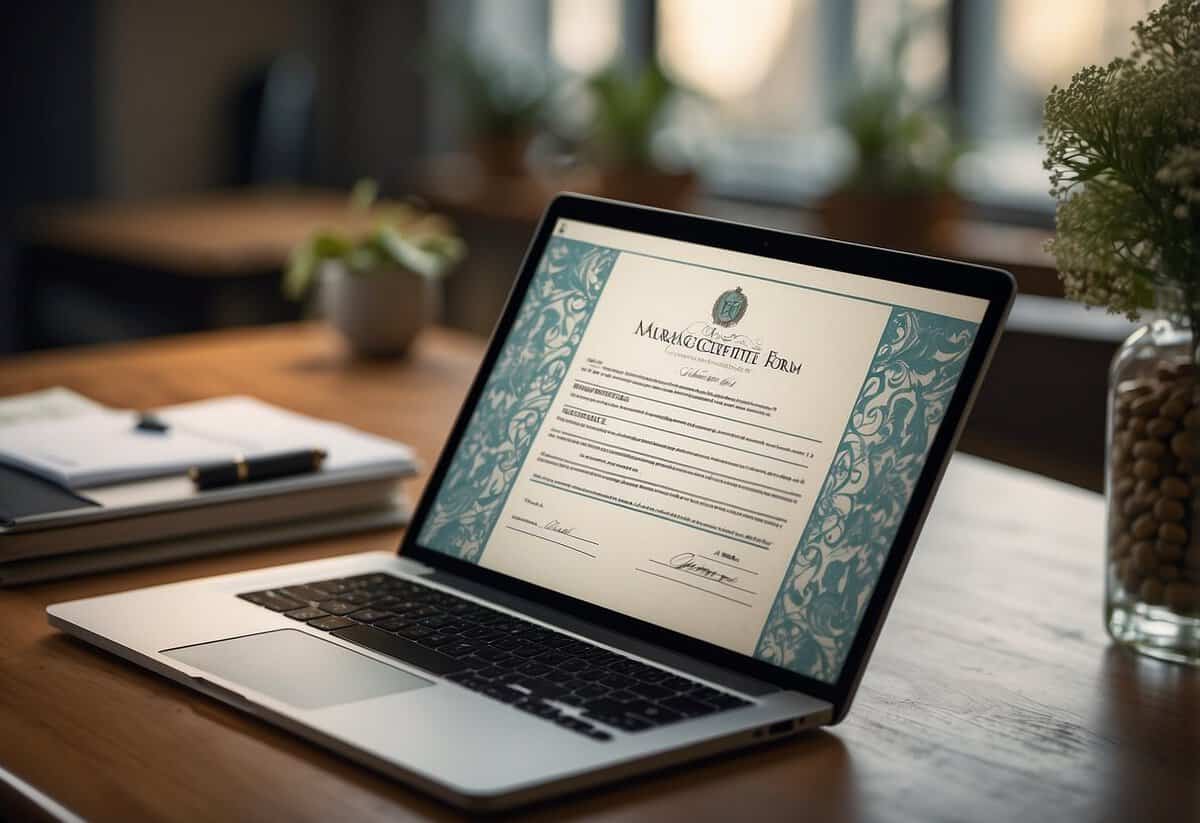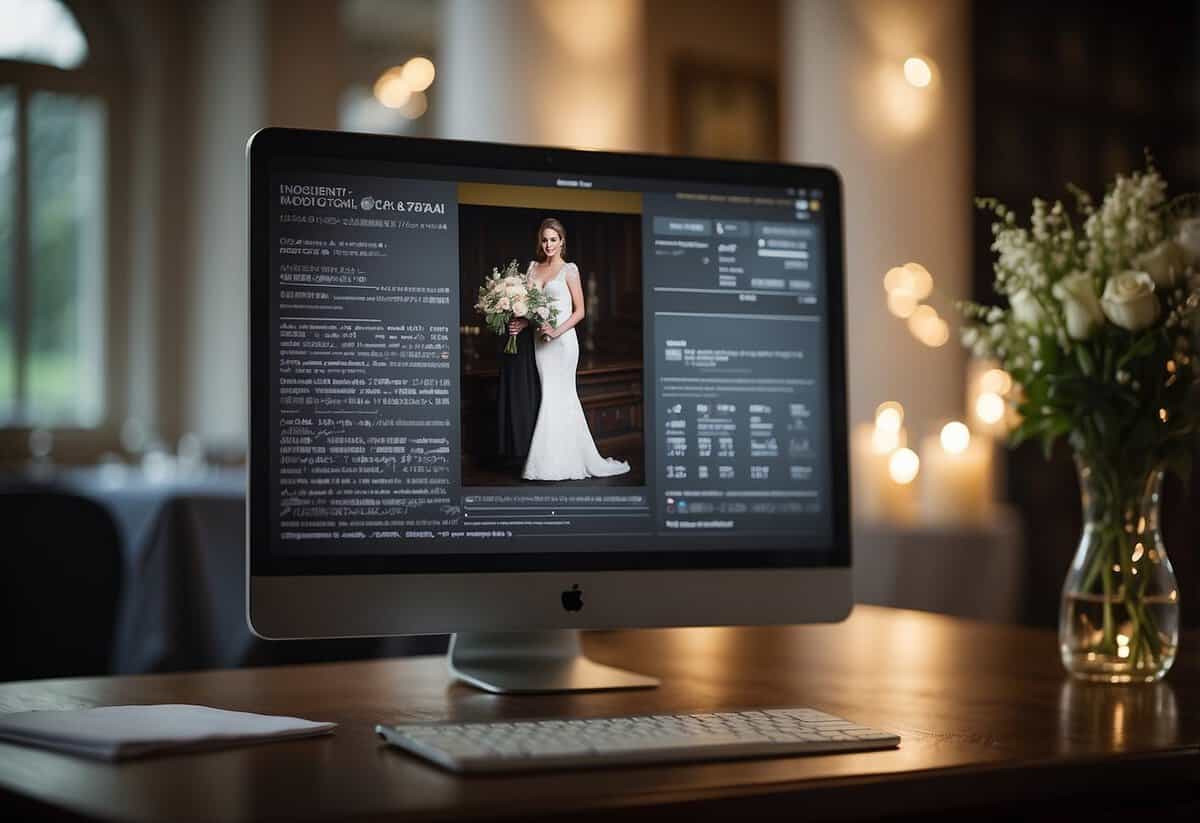Can You Get Married Online Legally in the UK? Here’s What You Need to Know
Ever wondered if you can tie the knot online in the UK? With the rise of virtual interactions, getting married online has become a tempting solution for many couples. But is it actually legal in the United Kingdom?

The answer is no, you cannot legally get married online in the UK. This might come as a surprise, given how digital our lives have become. You still need to be physically present at a registry office or an approved venue to get married legally. That’s not to say online marriages are entirely off-limits; some countries do recognize them, and if you get married online in a country where it is permitted, the marriage might be recognized in the UK under certain conditions.
This bit of information can be crucial for couples considering a virtual wedding. Knowing the legal implications and options available helps ensure that your special day is recognized and respected wherever you plan to start your married life. Stay tuned as we explore more about what it takes to get married online and other legal considerations you need to know.
Legal Requirements for Marriage in the UK

When planning to marry in the UK, it’s important to know the legal requirements. These include age and relationship criteria, obtaining the necessary certificates and licenses, and following the required notices and waiting periods.
Age and Relationship Criteria
To get married in the UK, you must be 18 or over. If you are 16 or 17, you’ll need permission from your parents or guardians.
You also can’t marry anyone you are closely related to. This includes siblings, parents, and grandparents.
Any past marriages must be legally ended. If you are divorced, you will need to provide a decree absolute.
Marriage Certificates and Licenses
You need to obtain a marriage license before your wedding. This shows you have permission to marry.
After the ceremony, you’ll get a marriage certificate. This is an official document proving you are legally married.
Depending on the type of ceremony, you’ll need different documents. For civil partnerships, there are similar requirements.
Notices and Waiting Periods
You must give a notice of marriage at least 29 days before your wedding. This is a legal statement that includes your personal details.
The notice must be given at your local register office and will be displayed publicly.
If you or your partner are from outside the UK or Ireland, you may need a visa to get married here.
You can find more information on marriages and civil partnerships. Make sure to follow all steps carefully to ensure your marriage is legally recognized.
Online Marriage Procedures
You can get married online legally in the UK if you follow the right steps. This includes understanding the validity of your online marriage and using recognized platforms and services to ensure everything is done correctly.
Validity of Online Marriages
Online marriages are legal in the UK if they meet specific criteria. When you marry online in the US, you receive a legal marriage certificate, which the UK recognizes. You must ensure that your marriage is performed by a legal officiant and that you receive all necessary documentation, as required by UK law. It’s crucial to confirm that your online marriage meets all legal requirements to be considered a valid marriage when you settle in the UK.
Recognized Platforms and Services
Using well-established and reputable platforms is key to successfully getting married online. Services like Courtly offer step-by-step guides on how to create an account and proceed with your online marriage. Platforms like MarryFromHome also facilitate the process by ensuring you receive a legal marriage certificate that is recognized in the UK. Always verify that the platform you choose is authorized to conduct online marriages to avoid any legal issues later.
International Considerations
When considering an online marriage in the UK, you must account for factors like marrying a foreign national, how your marriage is recognized outside the UK, and potential visa and immigration requirements. Each aspect is vital to ensure your marriage is legally valid and recognized.
Marrying a Foreign National
If you’re planning to marry a foreign national online, there are a few steps you need to follow. Firstly, both parties need to meet UK’s legal marriage requirements, such as age and consent. After the ceremony, the marriage certificate must be legally recognized.
You might also need to provide additional documents like proof of identity and civil status. If you’re marrying someone from the United States or another country outside the UK, check the specific legal requirements for both countries.
It’s essential to ensure both of you have met in person to fulfill legal criteria. Proper documentation and adherence to local laws are crucial to avoid any legal complications.
Marriage Recognition Outside the UK
Ensuring your marriage is recognized outside the UK is vital, especially if you plan to live abroad. For instance, a legal US online wedding might be accepted in the UK, provided it follows specific protocols.
Different countries have different rules for recognizing marriages conducted online. It’s important to verify with the local authorities to ensure your marriage is legally recognized. This might include providing an apostille or other legal certifications.
Keep in mind that documentation proving the authenticity and legality of the marriage might be required. This could include notarized copies of your marriage certificate or other legal acknowledgments.
Visa and Immigration Information
When marrying a foreign national, navigating visa and immigration processes can be complex. For the spouse to enter the UK, they might need a spouse visa or an entry visa. The foreign spouse will often need to apply for a visa, providing proof of the marriage and other required documents.
The UK government outlines specific visa requirements, including demonstrating a genuine relationship and meeting financial criteria. Immigration status can affect your ability to stay in the UK post-marriage, so it’s important to stay informed.
Always check the latest immigration policies and consult with legal specialists if needed. Properly preparing your visa application ensures a smoother process and reduces the risk of denial.
Ceremony Types and Venues

When considering getting married in the UK, it’s essential to understand the various types of ceremonies and venues available. From civil ceremonies to religious weddings, each option offers unique settings and requirements.
Civil Ceremonies and Partnerships
Civil ceremonies and partnerships are non-religious and can take place in a variety of locations. These ceremonies are ideal for couples who prefer a neutral setting or belong to different faiths. You can have your civil ceremony in a register office or at any venue approved by the local council.
Civil partnerships, which were initially available to same-sex couples only, are now open to all couples, providing a legal alternative to marriage. During the ceremony, you and your partner will make legally binding declarations.
One key point is that civil ceremonies must not include any religious content. This ensures the ceremony remains entirely secular, focusing purely on the legal commitment.
Religious Ceremonies
Religious ceremonies offer a traditional way to get married according to your faith. The Church of England and the Church of Wales are prominent institutions where you can have a religious wedding. In these churches, the ceremony usually includes hymns, prayers, and readings from religious texts.
Other religious buildings, such as mosques, synagogues, and temples, also conduct marriage ceremonies according to their respective beliefs. For a wedding in a religious venue, you often need to meet specific criteria set by that faith.
Religious ceremonies provide a meaningful way to incorporate your spirituality into your wedding and often include community participation and blessings.
Approved Premises and Locations
Approved premises are venues licensed by the local council to host civil marriages and partnerships. This category includes a wide range of locations such as hotels, manor houses, and even some outdoor areas. These venues offer flexibility and a personalized touch to your special day.
When choosing an approved premise for your wedding, it’s important to ensure it is properly licensed. Many same-sex couples find these venues particularly welcoming and accommodating, allowing for a ceremony that feels inclusive and personal.
By selecting an approved venue, you gain the freedom to tailor the setting and ambiance to match your vision for the perfect day.
Essential Documentation and Witnesses
When planning to get married online legally in the UK, you must have specific documents ready and arrange for legal witnesses to be present. This ensures your marriage complies with UK laws.
Documentation for Marriage Registration
To register your online marriage, you will need several important documents. Both parties must have a valid passport or UK birth certificate. This verifies your identity and nationality.
You also need to provide proof of your address, such as a utility bill or tenancy agreement. If either of you has changed your name before, documentation such as a deed poll must be included. Lastly, if either party was married before, you will need a divorce decree absolute or a death certificate if widowed.
Legal Witnesses Requirements
Two witnesses are required to validate your marriage ceremony under UK law. These witnesses must be 18 years or older and understand the ceremony’s significance. They do not have to be related to you.
Your witnesses must be physically present during the online marriage ceremony. They will need to sign the marriage certificate at the end of the ceremony. If using a service platform, there may be specific steps for including witnesses, so make sure to follow any provided guidelines.


